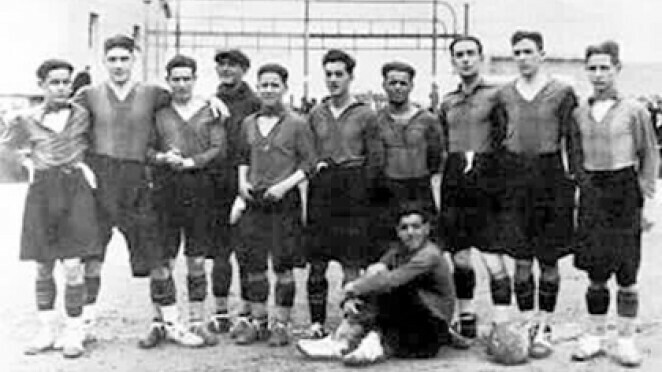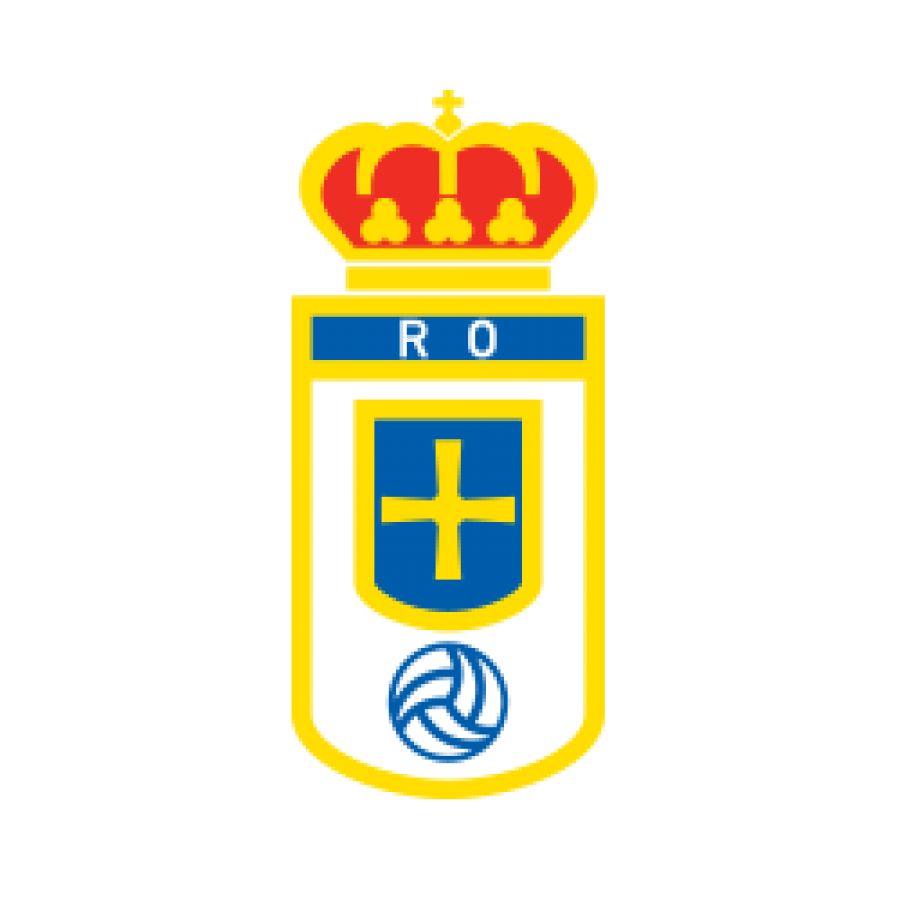13 YEARS IN THE ELITE (1988 - 2001)

When Vicente Miera came back to Real Oviedo in 1987 to manage the Blues, as he had already done in the mid-70s, he reached an agreement with chairman José Manuel Bango in order to lay the foundations for a solid team that could get promoted in two or three seasons’ time. In spite of that, the end of the 1987-1988 season saw Real Oviedo get into the promotion play-off against Real Mallorca, play-offs were then back after a very long period of absence. Real Oviedo got a 2-1 home win in the first leg after Second Division’s top scorer Carlos netted a stunning header from the edge of the penalty box seven minutes into injury time. A week later, an away 0-0 draw meant that the Carbayón side got promoted back to First Division after twelve seasons in the lower divisions.
This unexpected success triggered a massive explosion of joy all over Asturias that exceeded all that could have been foreseen. There were long pile-ups in the centre of the region as the team made their way back from the airport to the city by coach. Hundreds of thousands of people came together to welcome the promoted side in an unprecedented celebration.
That amazing promotion was the beginning of a long run in the top flight that matched Real Oviedo’s longest stay at the top, which had been set in thirteen seasons during the golden age of the club in the mid-1930s and 1940s.
Not only was relegation avoided for such a long time but Real Oviedo qualified to play the UEFA Cup for the first time ever, even though the Blues had occupied those top spots in a distant past, when that competition had not been born yet. In September 1991, the Carbayón side played against Genoa CFC, but lost after conceding a goal in the last minute of the away game in Italy, which meant a final 3-2 score on aggregate to the Italian squad.
After that successful year, there were more brilliant seasons and others where relegation was narrowly dodged (in 1998 Real Oviedo succeeded in a relegation play-off to stay up after beating Las Palmas). In a nutshell, the Carbayones had an outstanding run in La Liga during the 1990s with a team which lined up top international players.
In 1992 Real Oviedo as well as most Spanish football clubs were forced to become public limited sports companies. The initial capital stock for Real Oviedo amounted to €3.6 million.
In 1998 the new regulations for safety in football stadiums made all-seated stands compulsory so the old Carlos Tartiere stadium had its capacity largely reduced from 23,500 to 16,500. This huge cut on seating was the reason why the building of a new stadium was undertaken. In 2000, the new Carlos Tartiere Stadium with 30,500 seats became Real Oviedo’s new ground. It was officially opened on 20th September 2000 with a match between Real Oviedo and Partizan Belgrade, where Real Oviedo lost 0-2 to the Serbian side. Three days before, Real Oviedo and Las Palmas had got a 2-2 draw on the first fixture in the 2000-2001 season.
Although the first months at the new ground were successful, the turn of the century brought about the bad omens under which the season had started, after the death of Slovaquian midfielder Petr Dubovsky in a diving accident. After a season where Real Oviedo had not been at any time on the relegation spots, Real Oviedo went down on the final matchday due to an away defeat in Majorca, where ironically thirteen years before they had been promoted, combined with some odd results in other decisive matches. The end of that long spell in La Liga meant the beginning of the darkest period in the history of the club, which was about to celebrate its 75th anniversary.
